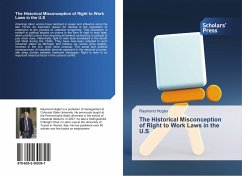American labor unions have declined in power and influence since the late 1970s. An important reason for decline is the opposition of employers to the process of collective bargaining. That opposition is evident in political attacks on unions in the form of right to work laws, which prohibit unions from requiring all workers covered by a contract to pay union dues. Historically, right to work laws developed in the South and West during the 1940s. They have now been adopted in such industrial states as Michigan and Indiana. As unions grow weaker, incomes in the U.S. grow more unequal. The social and political consequences of inequality become apparent in the electoral process, with deep divides between dominant ideologies. Right to work is an important historical factor in the cultural conflict.








